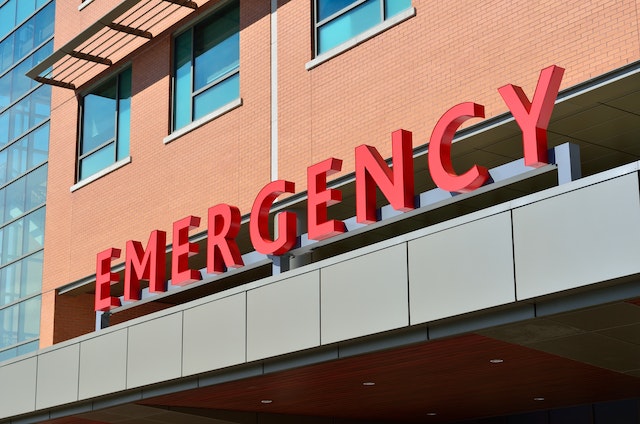Category Archives: Allergic Reactions
The Link Between Allergies and Sinusitis: Insights from NYC’s Best Allergist
 In this blog post, we’ll shed some light on the link between allergies and sinusitis. The hustle and bustle of New York City can be exhilarating, but for some residents, it also comes with the challenge of dealing with allergies and sinusitis. If you’ve ever wondered about the connection between these two conditions, you’re not alone.
In this blog post, we’ll shed some light on the link between allergies and sinusitis. The hustle and bustle of New York City can be exhilarating, but for some residents, it also comes with the challenge of dealing with allergies and sinusitis. If you’ve ever wondered about the connection between these two conditions, you’re not alone.
Allergies and Sinusitis: A Common Connection
Allergies and sinusitis are often interrelated and can exacerbate each other’s symptoms. Understanding this connection is crucial for effective diagnosis and treatment. Here’s how they are linked:
1. Allergic Rhinitis (Hay Fever)
Allergic rhinitis, commonly known as hay fever, is an allergic reaction to airborne allergens such as pollen, dust mites, pet dander, and mold spores. When you’re exposed to these allergens, your immune system releases histamines, which can lead to symptoms like:
- Sneezing
- Runny or stuffy nose
- Itchy or watery eyes
- Postnasal drip
- Coughing
The constant irritation of the nasal passages and sinuses due to allergic rhinitis can make you more susceptible to sinusitis.
2. Sinusitis
Sinusitis, also known as a sinus infection, occurs when the lining of the sinuses becomes inflamed and swollen. This can happen due to infections, allergies, or other irritants. Sinusitis symptoms can include:
- Facial pain or pressure
- Headache
- Thick nasal discharge
- Cough
- Fatigue
Allergies can contribute to sinusitis by causing inflammation in the nasal passages, obstructing drainage, and creating an ideal environment for bacterial growth.

Allergies and Sinusitis: Diagnosing and Treating the Connection
1. Allergy Testing
To address the link between allergies and sinusitis, Dr. Sneeze may recommend allergy testing. Identifying specific allergens that trigger your symptoms is crucial for effective management. Allergy testing can include skin prick tests and blood tests to pinpoint your sensitivities.
2. Allergen Avoidance
Once allergens are identified, Dr. Sneeze will provide guidance on allergen avoidance strategies. This may involve recommendations for reducing exposure to common allergens in your home and work environments.
3. Medications
Both allergies and sinusitis can benefit from medications. Allergy medications like antihistamines and nasal corticosteroids can help manage allergy symptoms. For sinusitis, antibiotics or decongestants may be prescribed to alleviate infection-related symptoms.
4. Immunotherapy
For long-term relief, immunotherapy (allergy shots) may be recommended. Immunotherapy gradually desensitizes your immune system to specific allergens, reducing your body’s overreaction to them and lessening the risk of sinusitis.
Link Between Allergies and Sinusitis: Contact NYC’s Best Allergist
If you’re experiencing the frustrating cycle of allergies and sinusitis, seeking expert guidance is essential. Dr. Boyan Hadjiev, MD, “Dr. Sneeze,” is NYC’s best allergist, specializing in the diagnosis and treatment of these conditions. Don’t let allergies and sinusitis disrupt your life in the city. Dr. Hadjiev is dedicated to helping you find relief and improve your quality of life. Schedule an appointment today.
Allergy, Asthma and Sinusitis P.C
Boyan Hadjiev, MD
30 East 40th Street
Suite 1200
New York, NY 10016
212-319-5282
Anaphylaxis: Causes and How to Respond
 In this blog post, we will discuss what anaphylaxis is, what causes it, and how to respond in case of an emergency. Anaphylaxis is a severe, potentially life-threatening allergic reaction that requires immediate medical attention. It can happen quickly, within minutes or even seconds, and can affect multiple organs in the body.
In this blog post, we will discuss what anaphylaxis is, what causes it, and how to respond in case of an emergency. Anaphylaxis is a severe, potentially life-threatening allergic reaction that requires immediate medical attention. It can happen quickly, within minutes or even seconds, and can affect multiple organs in the body.
What is Anaphylaxis?
Anaphylaxis is a severe allergic reaction that can cause a range of symptoms, including:
- Skin reactions such as hives, itching, and flushing
- Swelling of the face, lips, tongue, and throat
- Difficulty breathing, shortness of breath, or wheezing
- Chest pain or tightness
- Abdominal pain, nausea, or vomiting
- Dizziness or fainting
These symptoms can develop quickly and progress rapidly, making it essential to seek medical attention immediately.
What Causes Anaphylaxis?
Anaphylaxis occurs when the body’s immune system overreacts to an allergen. The most common allergens that can cause anaphylaxis include:
- Food, especially peanuts, tree nuts, shellfish, and dairy
- Insect stings, such as from bees, wasps, and hornets
- Medications, including antibiotics, aspirin, and chemotherapy drugs
- Latex, which is found in gloves, balloons, and other products
- In some cases, exercise, cold weather, or emotional stress can trigger anaphylaxis
How to Respond to Anaphylaxis?
Anaphylaxis is a medical emergency that requires prompt treatment. If you or someone around you experiences symptoms of anaphylaxis, follow these steps:
- Call 911 or your local emergency number immediately.
- If the person has an epinephrine auto-injector (such as EpiPen), use it right away as directed.
- Make the person lie down and elevate their legs if possible.
- Loosen tight clothing and cover them with a blanket.
- Do not give anything to eat or drink, as it can obstruct the airway.
- Monitor the person’s breathing and be prepared to perform CPR if necessary

Preventing Anaphylaxis
If you have a history of anaphylaxis or severe allergic reactions, it’s crucial to take steps to prevent future episodes. Here are some tips:
- Identify and avoid triggers: Work with an allergist to determine the specific allergens that cause your anaphylaxis and learn how to avoid them.
- Carry an epinephrine auto-injector: Make sure to have your epinephrine auto-injector with you at all times and know how to use it correctly.
- Wear a medical alert bracelet: A medical alert bracelet can inform others about your anaphylaxis and provide emergency contact information.
- Develop an emergency action plan: Work with your allergist to develop an emergency action plan that outlines the steps to take in case of anaphylaxis.
Causes & How to Respond to Anaphylaxis: Conclusion
In conclusion, anaphylaxis is a severe and potentially life-threatening allergic reaction that requires immediate medical attention. Understanding the causes and symptoms of anaphylaxis is important in order to prevent and respond to it effectively. If you or a loved one has experienced anaphylaxis, it is important to seek medical attention right away and follow up with an allergist for further evaluation and treatment.
At Allergy, Asthma and Sinusitis P.C, Dr. Boyan Hadjiev provides comprehensive allergy testing and treatment services, including immunotherapy, medication management, and personalized care plans tailored to each patient’s unique needs. With his expertise and experience, Dr. Hadjiev can help patients identify their specific allergens and develop strategies to avoid them, as well as provide emergency plans and epinephrine auto-injectors to prevent and manage anaphylaxis.
If you or a loved one is experiencing allergies or has a history of anaphylaxis, do not hesitate to contact Dr. Hadjiev and his team at Allergy, Asthma and Sinusitis P.C. They are committed to providing the highest quality care and helping patients live healthy, allergy-free lives.
Contact them today to schedule a consultation and take control of your allergies.
Allergy, Asthma and Sinusitis P.C
Boyan Hadjiev, MD
30 East 40th Street
Suite 1200
New York, NY 10016
212-319-5282
Serving all of New York City and the Tri State Area including Zip Codes: Top Allergist NYC Midtown, Chelsea and Clinton: 10001, 10011, 10018, 10019, 10020, 10036 | Gramercy Park and Murray Hill: 10010, 10016, 10017, 10022 | Greenwich Village and Soho: 10012, 10013, 10014 | Lower Manhattan: 10004, 10005, 10006, 10007, 10038, 10280 | Lower East Side: 10002, 10003, 10009 | Upper East Side: 10021, 10028, 10044, 10128 | Upper West Side: 10023, 10024, 10025
